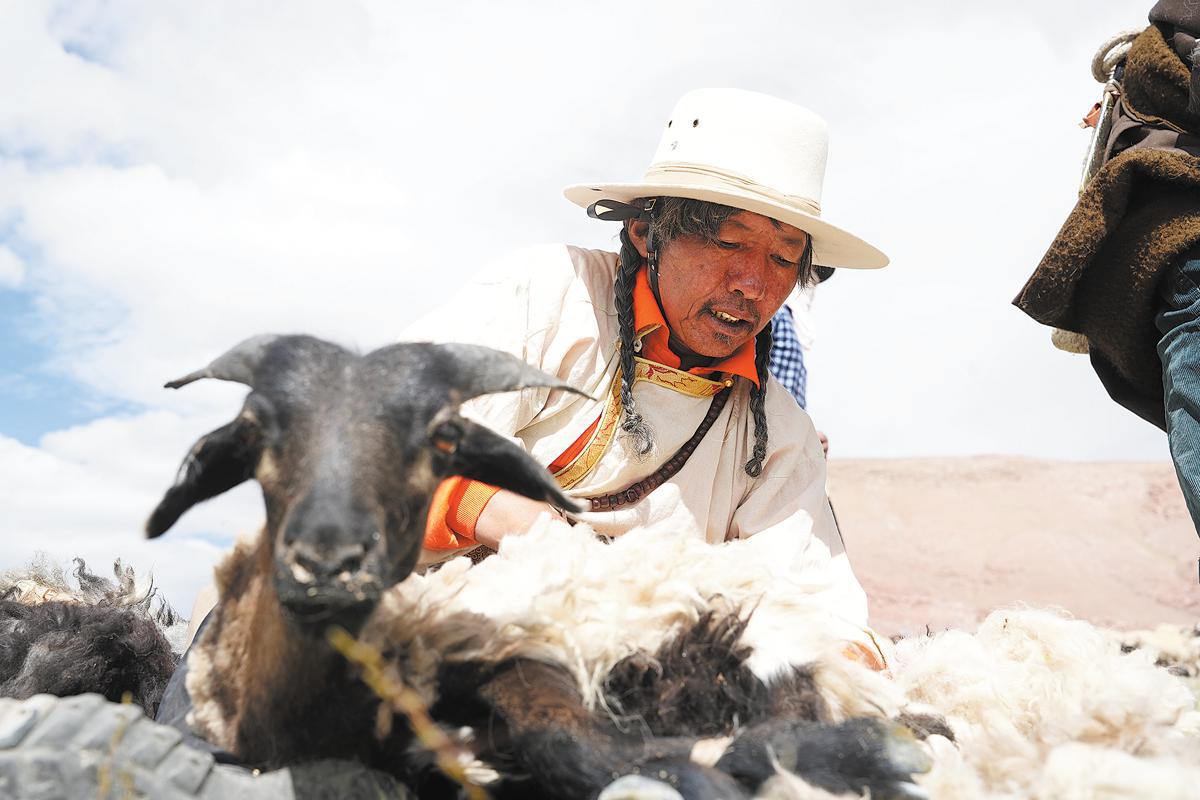Sheep shearing season begins in Xizang grasslands
Updated: 2024-08-01 By Palden Nyima and Daqiong in Lhasa (China Daily)  Print
Print 



A Tibetan herder shears a sheep in Gerze county, Xizang autonomous region. SONAM RINCHEN/FOR CHINA DAILY
In the picturesque grasslands of Gerze county in Ngari prefecture of the Xizang autonomous region, the arrival of summer signals commencement of the annual sheep shearing season.
With an average altitude of 4,500 meters above sea level, the pastoral village of Tarab in Oma township was recently abuzz with activity as herders prepared for the traditional sheep shearing event, a significant cultural and economic milestone for the community.
Against the backdrop of black yak-hair tents and the aroma of local delicacies such as yogurt and tsamba — roasted highland barley flour — herders from Tarab village gathered to shear over 300 sheep, officially kicking off the shearing activities for the year.
With well-defined roles and coordinated efforts, the herders diligently sheared, trimmed, sorted and packaged the wool, while singing the harmonious tunes of traditional songs and dances.
One can hardly see any signs of frustration or fatigue on their faces. Sheep shearing is not merely a customary practice but an integral part of the herders' livelihoods in the area. As each sheep shed its woolen "coat", the herders engaged in skillful maneuvers, exchanging breeding insights and shearing techniques, fostering a sense of community and shared knowledge.
Dorje, a village official of Tarab, said that the significance of sheep shearing extends beyond its tradition, playing a vital role in animal husbandry production.
By shearing the sheep, not only does it promote their growth and health by preventing parasite infestation, but it also serves as a key source of economic sustenance for the herders, contributing to their increasing prosperity over the years.
In Tarab alone, the sheep breeding scale has surpassed 5,000, with wool production emerging as the primary income generator for the herding community.
"The amount of wool sheared by each household reflects a portion of their income, showcasing the economic importance of this seasonal ritual," said Dorje.
"The festivities surrounding the sheep shearing event are not just about the harvest, but also a celebration of the rich cultural heritage of the Tibetan people."
Before the shearing process begins, elaborate preparations are made, and traditional ceremonies are conducted, underscoring the deep-rooted connection between the community and its customs.
Gachung, a skilled herder from the village, proudly shared his accomplishment of shearing the wool of 38 sheep within 40 minutes, securing the top position in the annual sheep shearing competition. "I am pleased and honored to have been chosen as the winner of this year's shearing celebration. I hope in the future, despite the changes of time, this ancient tradition can survive for the future generations," Gachung said.
Contact the writers at palden_nyima@chinadaily.com.cn








